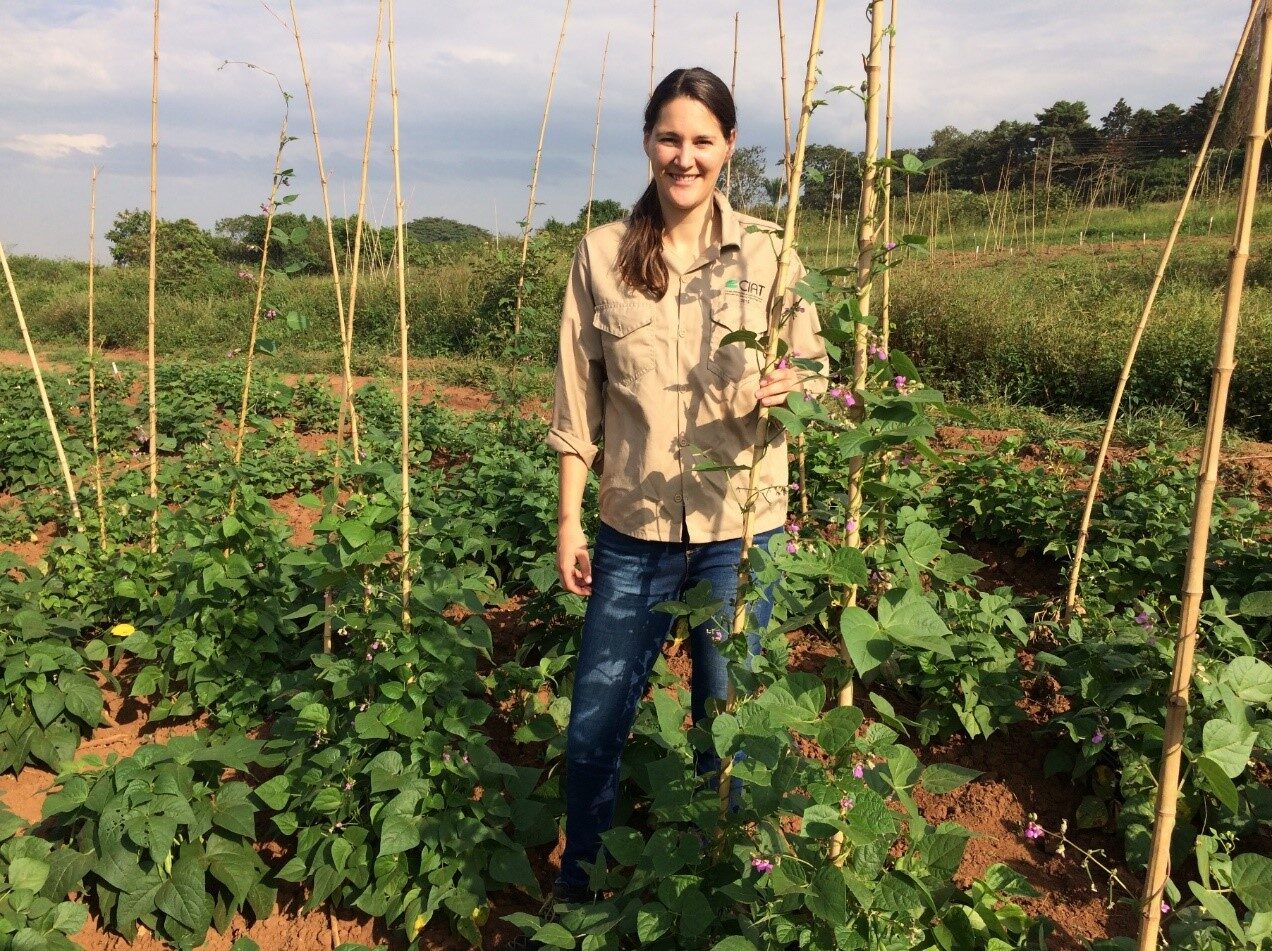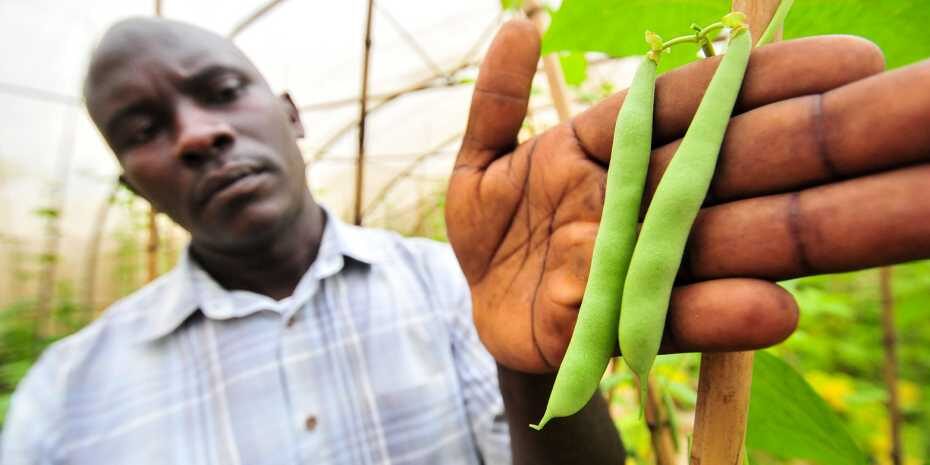SDC–ETH Zurich–CGIAR
Magic beans to mark an anniversary
The success story of Michelle Nay, a 30-year-old Swiss scientist and bean specialist, demonstrates how multi-stakeholder work is helping to improve global food security. We are publishing her story on the occasion of the 50th anniversary of cooperation between the Swiss Agency for Development and Cooperation (SDC), ETH Zurich and agricultural research group the CGIAR, and the 150th anniversary of the Institute of Agricultural Sciences at ETH Zurich.
It all began in a classroom at ETH Zurich, a prestigious Swiss federal institute of technology. Some years back, Michelle Nay specialised in molecular biology and plant breeding. Coming from a small village in the canton of Graubünden, nothing predisposed her to become a champion for beans. Passionate about travel and sensitive to global challenges, she devoted her thesis to this king of plant protein.
Beans to improve food security
Michelle spent over three years on her project. She travelled to Latin America and East Africa, the main bean-producing regions in the tropics, where beans are the most important and affordable source of protein. Hence, for many people they are on the menu several times a day. Beans are often grown as a subsistence crop under challenging conditions: droughts, heavy rains and plant diseases are frequently encountered and further limit the yields on the tiny plots. Michelle's work specifically focuses on improving smallholder farmers’ food security with disease-resistant common beans. Her work earned her the SFIAR PhD Award in 2020. The Swiss Forum for International Agricultural Research (SFIAR) awards an annual prize for agricultural research for development.
Essential partnerships
At each stage, expert knowledge was required and Michelle was helped by important actors and networks. ETH Zurich, which is one of the best schools in the world, gave her the technical knowledge and tools to conduct her doctorate.
On the ground, her work was hosted by the International Center for Tropical Agriculture (CIAT), one of the 15 agricultural research centres of the CGIAR (formerly known as the Consultative Group on International Agricultural Research). CIAT runs extensive bean breeding programmes and has a seed depository of thousands of varieties. In particular, it coordinates the activities of the Pan-Africa Bean Research Alliance (PABRA) in 29 countries in sub-Saharan Africa. The CGIAR is actively involved in helping developing countries make their agriculture more efficient and sustainable. These efforts are broadly supported by the Swiss Agency for Development and Cooperation (SDC), as the objectives of the CGIAR are in line with Switzerland's foreign policy objectives. Food security is a key theme for the SDC, which is actively committed to a participatory process involving all organisations and groups concerned.
50th anniversary of SDC–ETH Zurich–CGIAR cooperation (1971–2021)
Michelle's story is one of many. The 150th anniversary of the Institute of Agricultural Sciences at ETH Zurich is an opportunity to celebrate the 50 years of joint work by the SDC, ETH Zurich and the CGIAR to improve global food security. "The SDC has worked closely with the current Institute of Agricultural Sciences at ETH Zurich since its inception. The framework for most of this collaboration is the SDC's work with the CGIAR research centres, which began in 1971. This tripartite cooperation goes back 50 years and covers a large part of the SDC's existence", explains Ambassador Thomas Gass, assistant director-general and head of South Cooperation at the SDC. For Michelle, such collaboration is essential for research, science and the sustainable development of societies. "I wish all three a happy anniversary. I hope they keep up the good work and keep us abreast of what they're doing," she concludes.

